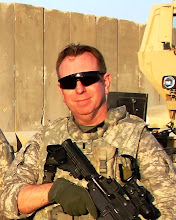Over the past couple of weeks, I’ve had the opportunity to watch some movies on DVD. By chance, two of the movies dealt with the holocaust. One was Roman Polanski’s Academy Award winning masterpiece, The Pianist. (Note: For those of you who haven’t seen this film, I recommend you watch it as soon as possible. It is that good.) The 2002 film, based on the memoir of the same name, follows Polish musician Wladyslaw Szpilman’s day to day life from the early days of the German occupation of Poland through the end of the war.
 The other was 2008’s The Reader, starring Ralph Fiennes and Kate Winslet, who, by the way, won the Academy Award for Best Actress for her portrayal. The movie details a youthful affair between the two protagonists and how their lives cross years later in light of the revelation that Winslet’s character had been a guard at Auschwitz during World War II.
The other was 2008’s The Reader, starring Ralph Fiennes and Kate Winslet, who, by the way, won the Academy Award for Best Actress for her portrayal. The movie details a youthful affair between the two protagonists and how their lives cross years later in light of the revelation that Winslet’s character had been a guard at Auschwitz during World War II.Both movies explore the human experience during Hitler’s attempt at exterminating the Jews – in showing both mankinds’ ability to maintain hope in the face of the most adverse conditions imaginable and in its ability to savage fellow human beings.
While watching these films, I could not help but recall my visit to the Dachau concentration camp in Germany in 2005. We were at the end of a three-week training mission in Hohenfels, Germany. The visit to Dachau was part of a tour of cultural and historic sites.
It was early March, so the winter winds were still biting. It was very somber, as you might imagine. Even my Soldiers, who are normally constant wise-asses, were quiet and reserved as they walked through the exhibits and prisoner barracks that the curators left standing so visitors could see the wretched conditions the Jewish prisoners lived in.
Towards the end of our time there a group of Soldiers approached – each in his own way appeared disturbed by what he had seen. One of them, a corporal, asked me the question nobody in the civilized world has been able to answer for sixty years: “How did this happen?”
I told them to think about what they had seen and to remember that this is why we fight. Because men are still willing to prey on their weakest neighbors and commit unspeakable atrocities against the weak and the defenseless. We do what we do because we have an obligation, as free human beings, to travel to faraway places and try to make things right – or at least to protect the weak who cannot protect themselves. Bosnia, Somalia, Darfur… All places where human beings have descended into the evil shadows of themselves.
I can’t imagine what it must have been like for those American Soldiers in Europe when they stumbled upon the concentration camps. Death camps filled with the skinny, wretched victims of the worst mankind has to offer.
I can’t imagine what they felt, but I am proud to share my heritage with them.



I am gathering a collection of oral histories from the members of the band of the 42 Rainbow Division. When it is complete, I will be glad to share. Deals with a lot of what you talk about here.
ReplyDelete